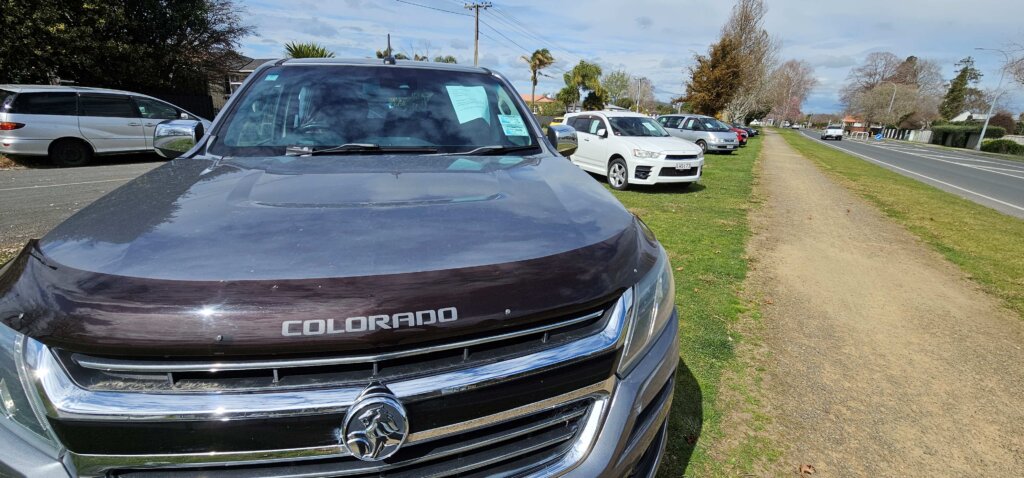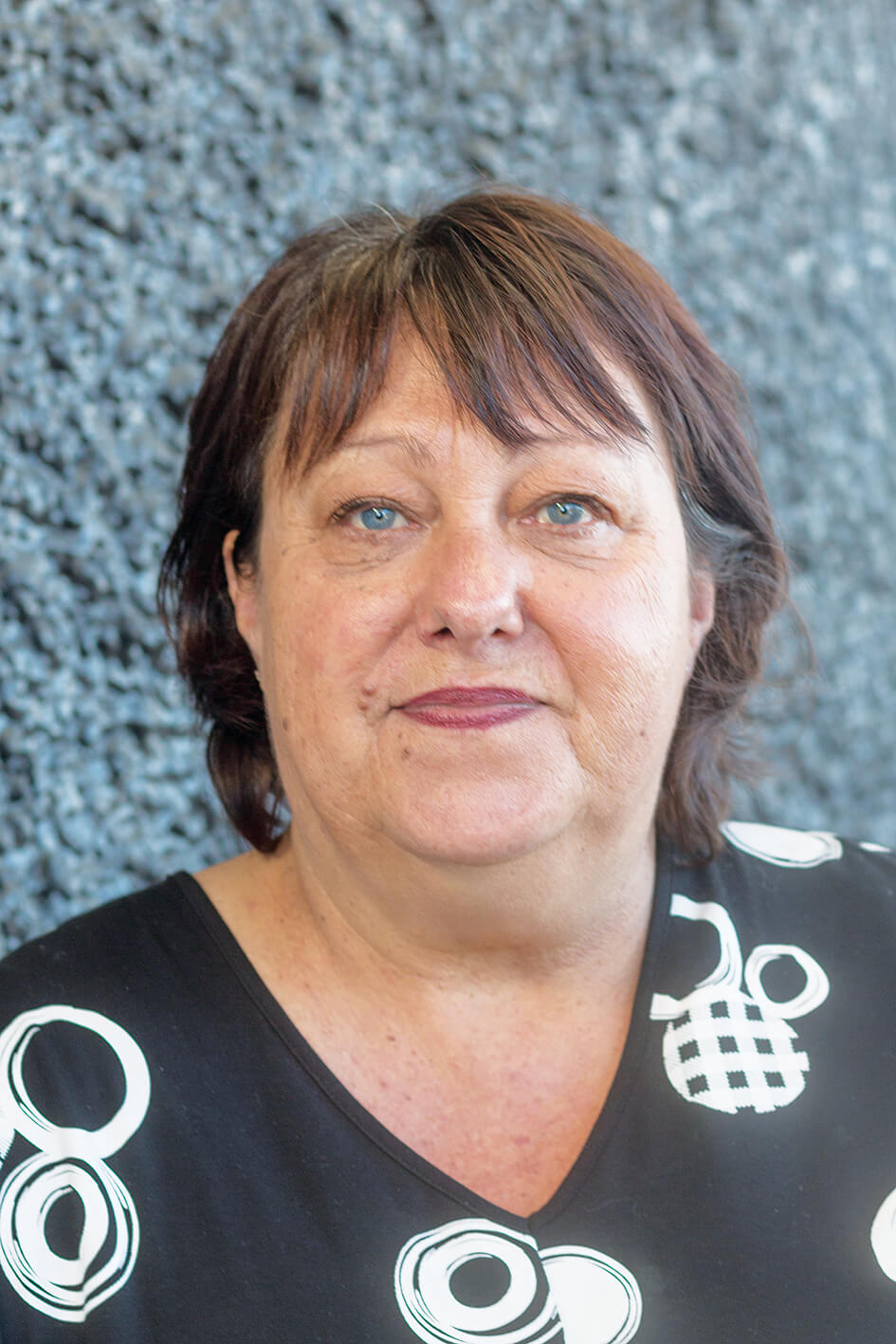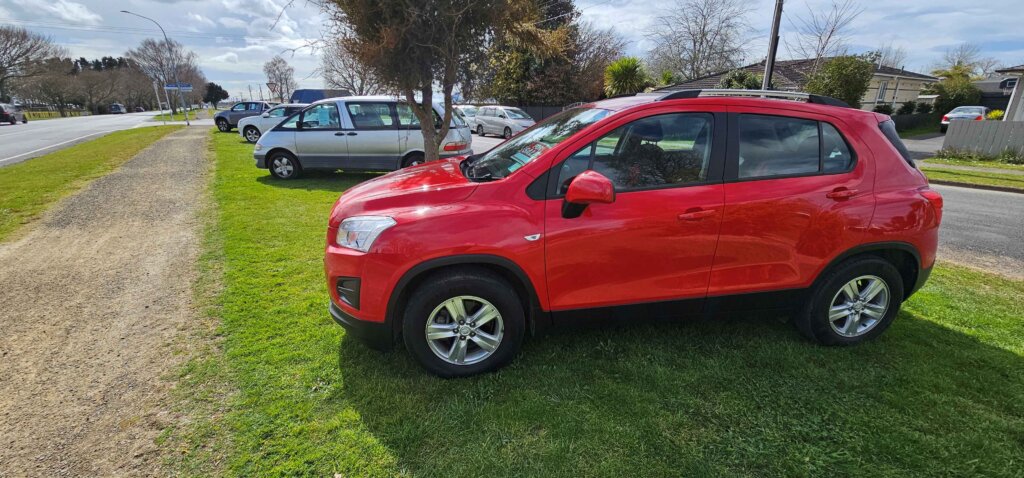
Parking like this on the berm, where cars are being sold from, could be a thing of the past under the new bylaw. Photo: Mary Anne Gill
A new ‘no parking on berms’ section in the draft Public Places Bylaw attracted most interest from submitters to Waipā District Council’s Strategic Planning and Policy committee this week.
Opinions were mixed with one saying parking on berms in Victoria Street, Cambridge was an eye sore while others said it was necessary in Kihikihi by the town’s cemetery.
The longest submission came from a resident concerned the grass berm either side of Victoria Street between Hautapu Rugby Club and King Street in Cambridge now resembled a used car yard.
“The big open grass area therefore has high profile visibility for people first driving into the town and people selling their cars with clearly visible ‘for sale’ signs have come in and used the opportunity to promote their cars.
“Some sit there for weeks. The grass gets churned up. The area looks worse for all these sale vehicles constantly being there, and it’s not a nice street view anymore,” the submitter said.
In their response, council staff said they had always had the ability to infringe when there was inappropriate parking on berms.
The area on Victoria Street near the Hautapu Sports Club had always been a problem site and received regular enforcement attention.
“More enforcement action can be taken to address the concerns raised,” the staff report said.
Strategic policy advisor Graham Pollard told the committee the draft bylaw went out for public consultation in June and July.
Thirty nine submissions were made by 15 submitters including one from the Cambridge Chamber of Commerce which used the forum to lobby for a ban on fireworks in town.
“Although we recognise that enforcing such a ban may present challenges, it does establish a clear boundary and represents a progressive step towards limiting the locations where fireworks can be employed.”

Kelly Bouzaid
Citing clause 19.8 in the draft bylaw, chief executive Kelly Bouzaid said no trader should offer for sale any statutory age-related products, including fireworks.
“The motivation behind our chamber’s involvement in this space, stems from our advocacy work with the equine industry around the welfare of animals and the impact of fireworks,” she told the committee.
“This prompts us to consider our own values in the context of being the equine capital of New Zealand, a title we proudly associate with Waipa – Home of Champions.
“In this district, a heightened focus on animal welfare of sport horses naturally aligns with our values.”
The council receives complaints pet and horse owners about the “distressing impact” fireworks can have on animals, she said.
In their reply, staff said the bylaw would prohibit sale of age restricted goods or services in a public area and would include fireworks sale.
“It does not cover the display of fireworks in public places. This proposal was not included in the bylaw.
“Council does not have evidence that this has been a significant problem, although there have been complaints from pet and/or livestock owners almost every year.
“Given this, and the difficulties in enforcing such a provision, it is not recommended that this proposal is implemented at this time,” staff said.
The most council could effectively do is not host events that include fireworks.
Cambridge Community Board also made a submission about the bylaw’s move towards removing event signage but wanted to see consistency around out of town events.
“Out-of-town events are commercial undertakings and such advertising is not permitted under the bylaw. Such signs are frequently installed illegally and removed by council when found,” staff said.
Another submitter was concerned newer streets – like Lilac Close in Cambridge – had central medians with a stormwater soakage area and turning bays between each area.
“I go there every now and again and sometimes I have to make a three point turn to actually use the gap as intended to.”
Staff said they had issued tickets for this poor parking practice.
“When motorists park in these areas they prevent residents using this area to turn in and out of driveways.”
The practice was already managed under the current and proposed bylaw.
The committee’s recommendation on the bylaw to full council was made after The News went to press but was expected to see minor changes to signage clauses.

Parking like this on the berm, where cars are being sold from, could be a thing of the past under the new bylaw. Photo: Mary Anne Gill









